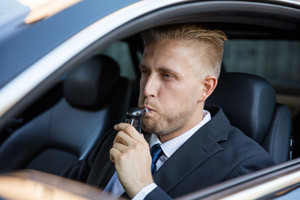
After a long day at work, you stopped at your favorite watering hole and had a couple beers with your pals. As you’re headed home, a police officer notices that you have a tail light that’s not working, or you don’t come to a complete stop at a light. If the officer pulls you over, can he or she ask you to submit to a blood alcohol test, even if you weren’t driving erratically and there are no visible signs of intoxication? Does the law place any restrictions on when and whether you can be required to take a blood alcohol content test?
As the law is currently construed in New Jersey, before a police officer can require that you submit to a blood alcohol test, one of two things must happen: the officer must either get your verbal consent to a test, or the police officer must have a warrant. That’s because drawing your blood is considered a search, covered by the protections found in the 4th Amendment to the U. S. Constitution.
That’s not to say, though, that there won’t be consequences if you refuse to submit to a blood alcohol test. While the refusal to take the test cannot be construed as evidence of guilt, you can face automatic suspension of your driving privileges. New Jersey adheres to the law of implied consent, which means that, by getting behind the wheel, you automatically consent to a blood alcohol test if one is requested. As a practical matter, it’s generally better to voluntarily submit to the BAC test and try to challenge the validity of the findings, if necessary.
A police officer cannot “force” you to take a blood alcohol test. Nonetheless, the officer may obtain a “telephonic warrant,” where a judge grants a verbal warrant based on the circumstances.
Contact Attorney Edward M. Janzekovich
To schedule a free initial consultation, contact my office online or call me at 732-257-1137. Evening and weekend consultations are available by appointment. I accept all major credit cards.


